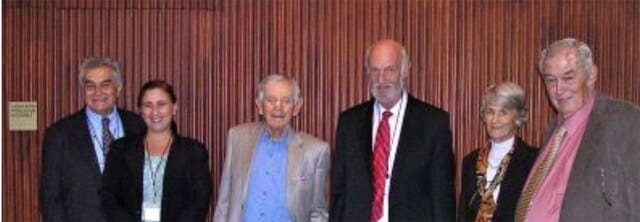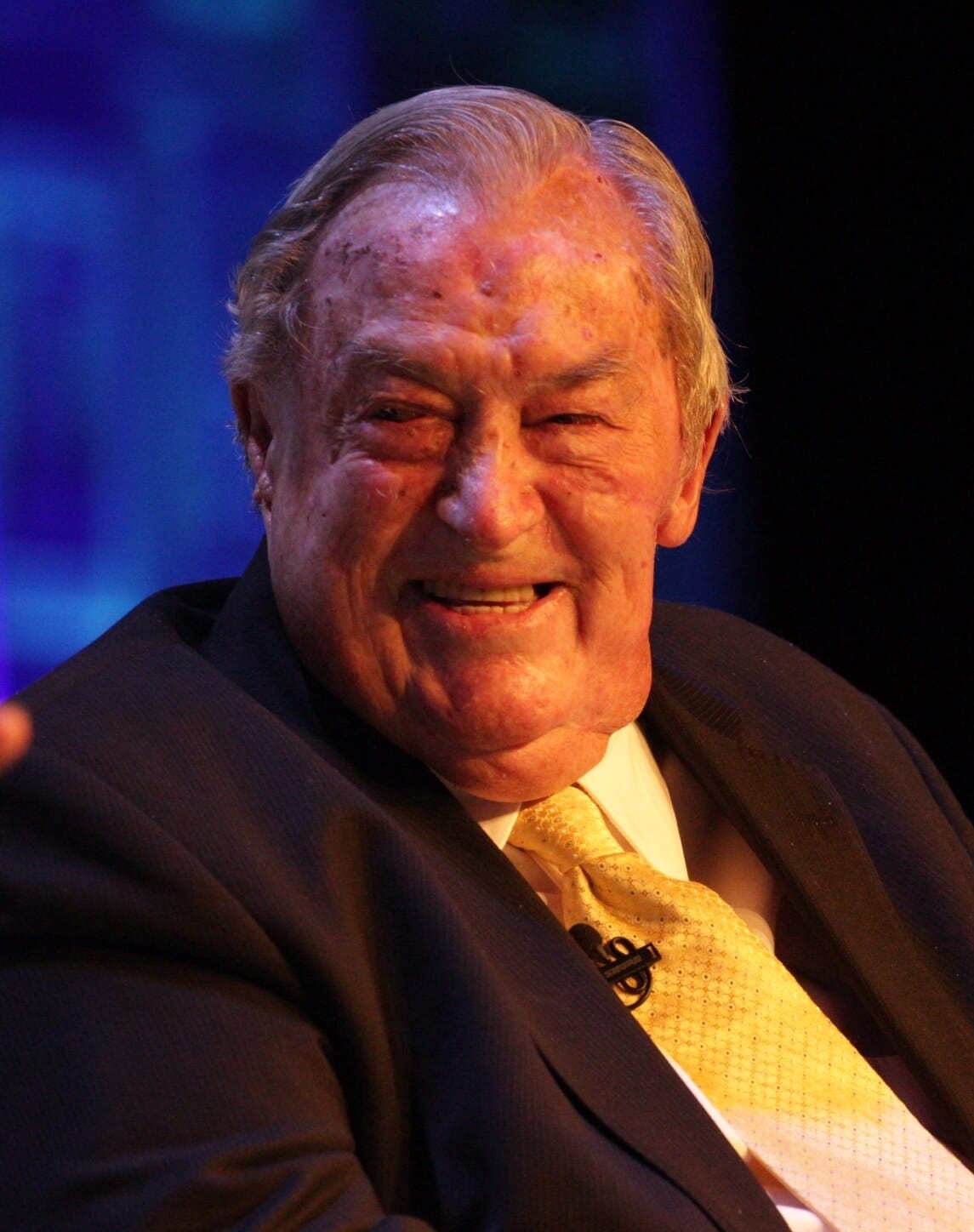Leakey knew how to discover fossils of ancient human species even as a child, as the son of famous parents, but he also cared about preserving nature and fighting ivory traders, received two kidney transplants and a liver transplant, lost his legs in the crash of his plane, and made important discoveries in the field of human evolution

Richard Leakey, a world-renowned paleoanthropologist who continues a family tradition, has died at the age of 77 in Nairobi, Kenya, Kenyan President Uhuru Kenyatta announced. The cause of death was not given.
Leakey, whose famous parents Louis and Mary Leakey made profound contributions to the understanding of human evolution through key fossil finds of early hominids, also made important discoveries of his own in the field.
In 1981 he gained public reputation as the presenter of the BBC television series "Birth of Mankind". In the late 80s, however, he changed his focus, taking up his post as head of the Kenya Wildlife Service, fighting illegal poachers who threatened to wipe out the country's elephants and rhinos. He also helped bring the problem of the illegal ivory trade to international attention.
In 1993, while flying his small plane he experienced a mechanical problem and crashed. As a result of the accident, both of his legs were amputated below the knee. Leakey always suspected, but was never able to prove, that the accident was caused by sabotage by his political opponents.
Earlier, in 1979, he received the first of two kidney transplants from his brother Jonathan. Decades later, he received the second kidney donation from his wife immediately and also underwent a liver transplant.
One of his colleagues in the field of human evolution research through fossils is Prof. Yoel Rek from Tel Aviv University. The acquaintance between the two spans five decades and they went through extraordinary experiences together, in a remote desert area in northern Kenya where the main research was conducted.
"I received the news of his departure with great sadness because we were career colleagues as well as personal friends." The professor said only to the "Hidan" reporter.
"I met him for the first time in 1972 when I was on a study trip to Africa together with the late Ofer Bar-Yosef and Naama Goren. We stayed with him and his mother Mary Leakey and he invited us to come to the research site in the east of Lake Rudolph - now Lake Turkana. We got stuck on the road in a whole adventure story and he rescued us with his plane after a few days: we rented a car, in our great stupidity only one car, and drove to reach his camp. On the way the car broke down and we waited for two days in a terrible desert until we realized that if we didn't start walking we would die of thirst. At night, we started walking towards Lake Rudolph, which was 80 kilometers away from us, and only when we got to the lake and lit a fire to signal our location did we see his plane looking for us, and that's how my acquaintance with him began."

On that expedition he let me see some of the important fossils discovered at the time including the famous skull called 1870 which is a skull of a very advanced Homo habilis or a very primitive Homo erectus. Her discovery caused a lot of buzz at the time.
Even at the end of that first task, Leakey was required to help the professor, only that his wedding date was approaching and they were still in an area far from a settlement. Leakey flew Rak in his plane to Nairobi, to make it easier for him to return to Israel.
But not only adventures, but also research work were shared by the two.
"A few years later, in 1976, I was already at Berkeley to write my doctorate. I had to come and examine the fossils found in Kenya, and he kindly, in a very unusual move, let me also study fossils that have not yet been published. He allowed me to spend a month there on the fossils, and every day we met and talked about my discoveries. He and his wife were immediately wonderful to me and later on various other occasions, all kinds of workshops held in Kenya, I got to meet him and stay at their house.
A human researcher with no formal education
"I really appreciated him even though he had no formal education. He was proud of the fact that he acquired his education from his father - Louis Leakey, and from all the famous people who came to visit there. He had an unusual sense of direction and some of the workers he chose, the Kenyans, were prodigious explorers who were largely responsible for most of the finds there. One of them, Kimoya Kamu, received a medal from National Geographic, and I was also invited to the event."
"The findings that he, his wife and his mother discovered in Oldubai are from the foundations of our discipline. Wonderful things, they helped discover important milestones of human evolution. Oldubai is a famous canyon in Tanzania and Richard's parents spent over thirty years there searching for the hominids responsible for the many tools found there, and he often accompanied them. He and his brother Jonathan found some of the important finds of Homo habilis when they were children and thus contributed to the discoveries of the whole family. He always rubbed shoulders with the best researchers who came to Oldubai Gorge."
"His father was the son of a missionary who came to Kenya. They renounced British citizenship and became Kenyans. Richard even ran for parliament and won a seat there. In those years he worked very passionately in animal conservation. He was responsible for the great persecution of the elephant poachers, collected a great many tusks collected by the poachers and burned them, which was described as a great victory over these poachers."
"This victory must have cost him dearly; A year later he crashed his plane in one of these pursuits and lost both his legs. Rumor has it that the crash of the plane was caused by the sabotage of those he was fighting against among the hunters. But he got out of it alive and continued digging on prostheses and looking for fossils. It was a surreal spectacle like no other to see Richard Leakey who was a very tall man walking around on prosthetics in the great desert of northern Kenya."
"Before the accident he underwent a kidney transplant that his brother Jonathan donated to him, in recent years he needed another transplant, and this time the donor was his immediate wife. He suffered from many illnesses, so the fact that he reached the age of 77. She is almost a medical miracle, and indicates a great deal of stubbornness on his part. "
"The last time we met was about seven years ago. There was a workshop in West Turkana at the great institute he and his wife founded there, and even though he was sick and exhausted, I remember him being alert in all the lectures, asking questions, and unusually interested in what was new. He used to report on the great changes Lake Turkana was going through and his testimonies were very learned testimonies on the ebb and flow of the water level due to the drying up of this wonderful lake. He was found in living natural life, and in fossil "life". He was interested in everything."
More of the topic in Hayadan:
